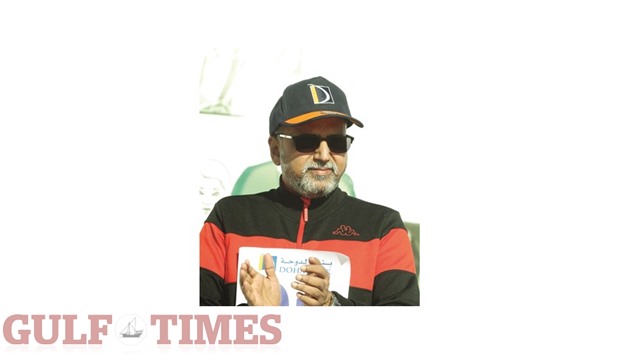Bankers play a significant role in helping inculcate among the youth the importance of “green banking” in the campaign against global warming and climate change, Doha Bank CEO Dr R Seetharaman has said.
Speaking on the sidelines of the 11th Al Dana Green Run held yesterday at the Aspire Zone, Seetharaman said bankers can help raise awareness on global warming by advising big industries to reduce their carbon emissions and by inculcating among the youth habits that promote a culture of green mission in their
personal lifestyle.
“The way forward is for more renewables. Gulf states should invest more on green missions, including carbon emissions reduction and carbon-neutral programmes, as well as on water and waste management,” Seetharaman said.
He added: “I have seen the development of many bankers’ networks into green banks … a portion of capital from real estate or loans must be invested in socially-responsible projects, which is a good commercial model. There is a better meaning in investing or lending in socially-economic responsible projects.
“That’s precisely what was emphasised during COP21 – huge amounts of investments are going in the emerging markets in the fields of solar energy. Gulf states are now also focusing their sights on solar, and this is the way to go forward. With the changing dynamics on the use of fossil fuels, I think it’s time to diversify ourselves towards carbon emission reductions and bankers can play a significant
role to achieve this.”
Asked if Qatar will impose further rationalisation measures following the recent reduction in oil prices, Seetharaman said: “Looking at the fiscal framework, government expenditure has been moderated around the essentials – healthcare and education. Also, none of the major projects are going to be given up.
“But globally, cost control, rationalisation, and fiscal prudence have been the norm. That is the focus now. Qatar is a sustainable economy and it has a policy framework that is akin to revenue and cost disciplines, and I think steps are being taken to achieve this.”
On Qatar’s fuel price hike on Thursday, he added: “That is part of the rationalisation process, which is bound to happen. It is living within the means, as always. Qatar is still a sustainable economy.”
Seetharaman explained that Qatar’s long-term revenues and contracts in the global LNG supply chain and the country’s diversified projects in multiple markets and investments are among the factors “that will help in consolidation and sustainability in real terms.”
“Economic fundamentals remain strong,” Seetharaman stressed.
He said that while current oil prices cannot be sustained even though it may lose further in the short term, “oil prices will recover in the medium and long-term.”
Seetharaman forecasts that oil prices will hover between $40 and $45 per barrel in the medium-term and around $60 to $65 per barrel in the long-term.

R Seetharaman during the 11th Al Dana Green Run. PICTURE: Jayan Orma
